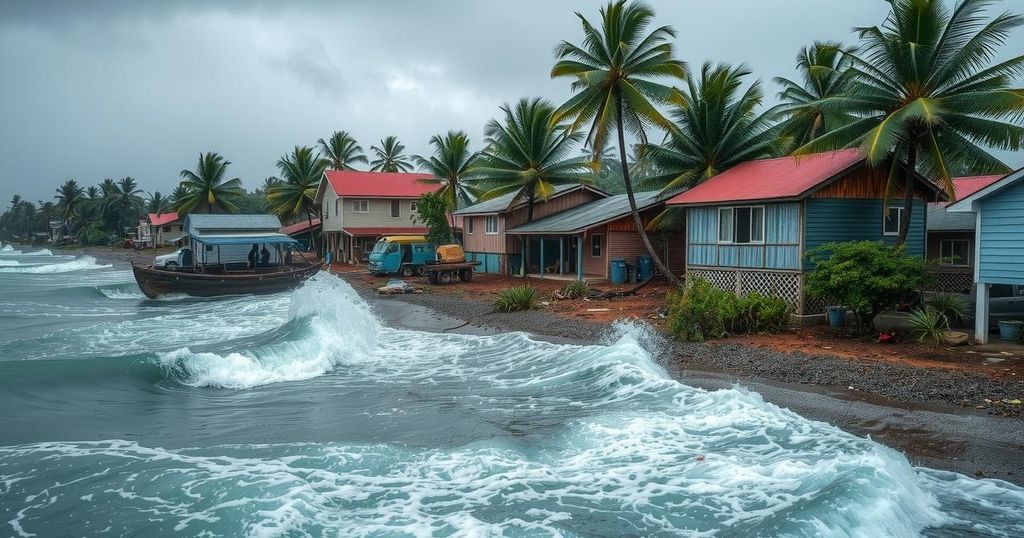Mayotte is grappling with the repercussions of Tropical Storm Dikeledi, following the devastation caused by Cyclone Chido. Authorities have urged residents to remain indoors with adequate supplies while cyclone shelters are reopened. The recent events have sparked discussions regarding the effectiveness of disaster response strategies and the government’s role in safeguarding vulnerable populations amid extreme weather incidents.
Mayotte, a French territory located in the Comoros archipelago, is currently confronting the challenges posed by Tropical Storm Dikeledi, which has struck shortly after Cyclone Chido wreaked destruction just weeks prior. The territory is experiencing significant rainfall and strong winds, leading authorities to issue urgent safety warnings and recommend that residents remain indoors while ensuring sufficient food and water supplies are procured. Reconvened emergency shelters are being prepared to accommodate individuals displaced by the storm, as the risks of flooding and landslides loom ominously.
The aftermath of Cyclone Chido had already raised alarms regarding the government’s disaster preparedness, and the emergence of Dikeledi has intensified scrutiny of governmental actions and the adequacy of their disaster response. Emergency personnel are concentrating their efforts on safeguarding the most vulnerable communities, particularly informal settlements that suffered extensive damage due to previous storms. As uncertainty regarding Dikeledi’s potential intensification persists, the strain on Mayotte’s infrastructure and local population highlights the pressing need for a reevaluation of disaster management policies in the territory.
Mayotte, a French overseas department since 2011, frequently faces the brunt of severe weather events, especially during cyclone season, which typically spans from December to April. The archipelago’s geographical location makes it particularly susceptible to tropical storms and cyclones, leading to significant social and economic challenges. Past occurrences, such as Cyclone Chido, have forced discussions around governmental preparedness, infrastructure resilience, and the safety of local populations. As storms continue to impact the region, public discourse increasingly centers on the sufficiency of disaster response mechanisms and their effectiveness in protecting vulnerable communities.
In conclusion, Mayotte’s current ordeal with Tropical Storm Dikeledi underscores ongoing vulnerabilities in the territory’s disaster preparedness and response systems. The recent calamities have stirred critical conversations regarding governmental responsibilities and the need for enhancements in protective measures against future storms. It is imperative that local and national authorities urgently address these concerns to improve safety and resilience for the residents of Mayotte as they navigate this perilous period.
Original Source: www.devdiscourse.com






